Do you need travel insurance? Here’s when it’s worth it
Some links in this post are affiliate links, which means I earn a small commission if you book through them, at no extra cost to you. This support helps keep this site running, the suitcase wheels spinning, and lets me keep writing ultra-detailed travel guides that are free for you to use to plan your next adventure.
Wondering if travel insurance is worth it? This detailed guide explains when travel insurance is essential, what it covers, and busts some travel insurance myths you might have heard.
“Do I really need travel insurance?”
It’s a question I get asked aaalllll the time, and it deserves a more detailed answer than just “yes”.
With travel costs rising, savings being squeezed by the cost of living, and delays or cancellations a constant risk on the road, being covered for unexpected mishaps is more important than ever.
After six years at a travel agency and another six years travelling solo full-time, I’ve heard more insurance (or rather lack-of-insurance) horror stories than I can count. From medical evacuations and strokes mid-flight to missed trips and permanently lost bags, the one thing all these stories have in common is this: travel insurance could have saved a lot of money and stress.
Travel insurance can’t stop bad things from happening, but it can make dealing with them easier, cheaper, and far less painful.

In this blog I’ll explain:
- When travel is absolutely worth it
- When you might be fine without it
- What it can actually cover
- Why relying on credit card insurance might not cut it
- Why even short trips might require travel insurance
And I’ve included loads of personal examples from my own travels to show you the tangible benefits of travel insurance.
Whether you’re heading overseas for the first time, planning a big multi-continent adventure, or just crossing the ditch for a long weekend in Australia, this guide will help you figure out if travel insurance is worth it for your trip. So, do you really need travel insurance? You’re about to find out!
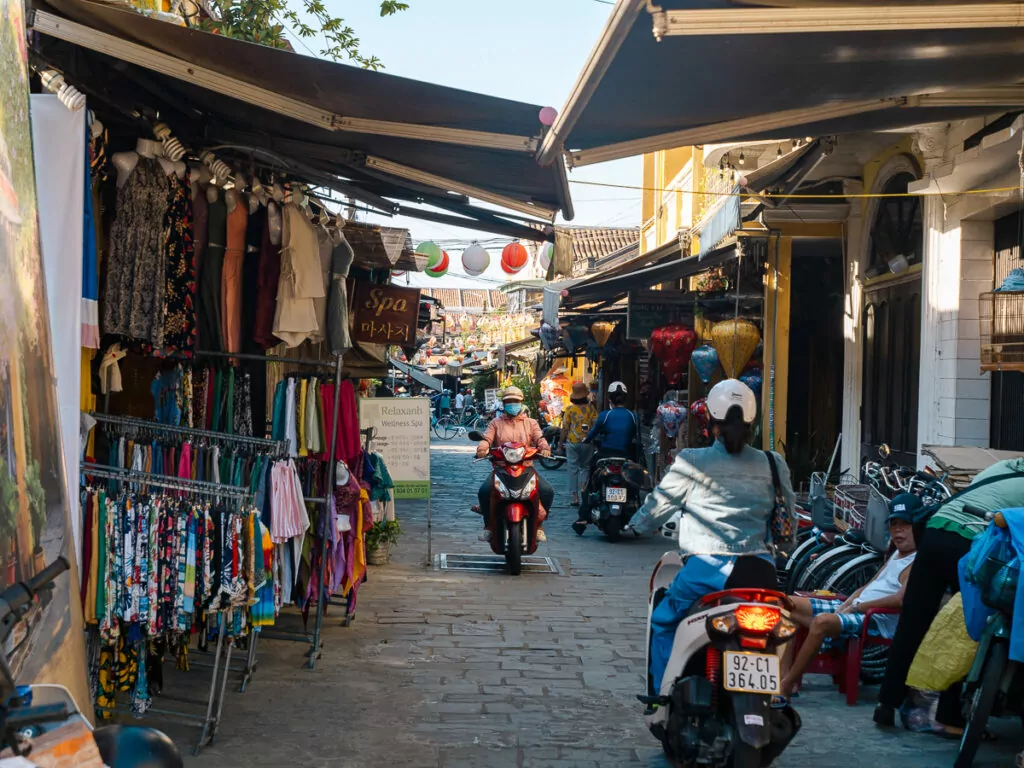
Disclaimer: I work with Cover-More Travel Insurance New Zealand as part of a long-term collaboration but as always, all opinions are my own and are based on my personal experience. This isn’t a paid piece of content, but I can’t write a travel insurance blog post without mentioning my own travel insurance provider. Please note that policy inclusions and benefits can change often so any specific insurance benefits I mention below may be different to what’s available now, please do your own research to ensure you find a travel insurance policy that suits you.
Quick answer: Do I need travel insurance?
Yes, for pretty much every international trip, travel insurance is 100% worth it.
A good travel insurance policy protects you from unexpected medical costs, delays, cancellations, lost luggage, and a whole bunch of other travel mishaps that can turn your dream trip into a disaster.
It’s one of those things you hope you never need, but if something does go wrong, you’ll be incredibly grateful you have it.

When is travel insurance necessary?
Travel insurance is worth it for practically all international trips because of the healthcare benefits alone. Here’s why:
- If you’re going to the USA, travel insurance is non-negotiable. Even a short hospital stay could cost tens of thousands of dollars 🤯
- Your normal health insurance policy generally won’t cover you for treatment outside of your home country
- Even in countries with public healthcare, non-residents usually aren’t entitled to free or subsidised treatment
- Reciprocal healthcare agreements (like NZ-AU, NZ-UK or EU-EU) typically only cover emergency care in public hospitals. They usually don’t cover primary care (GPs), specialists, medication, even ambulance rides might be excluded (and they can cost lots!).
- Some developing countries offer affordable public healthcare even beyond emergencies, but standards may not match Western expectations and language barriers can make everything more stressful. Private hospitals are common in developing countries, they usually offer a higher standard of care and access to English-speaking staff, but you’d have to pay out of pocket if you didn’t have travel insurance.
- Many comprehensive policies also cover flying you home after treatment or evacuating you elsewhere if treatment isn’t available locally
All it takes is one broken ankle, one rogue mosquito, or one appendix who decides now’s the time to get crazy, to suddenly be thousands of dollars out of pocket.

Healthcare benefits aside, international travel insurance is also especially important if any of these apply to you:
- You’ve booked non-refundable flights, hotels or activities: If your plans get cancelled or delayed, insurance can help you move your bookings or recover the cost.
- You’re participating in high risk activities: If you’re going hiking, skiing, kayaking or scuba diving then insurance is a no-brainer, just check what fun stuff is covered and what requires an add on.
- You’re heading somewhere remote: If there’s no hospital nearby then you’ll want a policy that covers emergency evacuation.
- You’re travelling solo: No travel buddy means no one to lean on if something goes wrong. A good comprehensive travel insurance policy should cover a companion to fly over and support you if you get hospitalised.
- You’re carrying expensive gear: Phones, laptops, cameras and drones are easy targets for theft or damage, and pickpocketing is a constant risk in busy cities.
- You’re renting a car: Instead of paying extra for the rental company’s insurance, some travel insurance policies cover rental car excess at a much lower cost.

When might travel insurance not be necessary?
Whether you should get travel insurance or not will totally depend on the potential risks of your trip, and if you can afford to cover them yourself if something went wrong.
The only trips that I personally skip travel insurance for are domestic trips within New Zealand, where I’m covered by the public healthcare system for any sickness or accidents, and my belongings are protected by my usual contents insurance.
But for every single international trip, even just a long weekend to the Gold Coast, I’ll always get travel insurance. It’s just not worth the risk.
That said, here are a few very specific scenarios where comprehensive travel insurance might not be necessary:
You’re visiting your home country
If you live abroad and you’re heading home to visit, you might be covered by the public healthcare as a citizen, so medical travel insurance might not be necessary. You’re still at risk of mishaps like travel delays, cancellations or lost baggage though, so a basic travel insurance policy to cover these could still be worth it for you.

You have pre-existing conditions that aren’t covered
If a comprehensive insurance policy won’t cover your medical needs due to previous health issues, it might be better value for you to purchase a policy that covers cancellations and belongings instead. Don’t rule it out straight away though, some insurers offer custom policies with higher premiums for pre-existing conditions or can just exclude certain medical conditions, so it’s worth comparing options before you decide.
Trips to countries with travel warnings
If you’re visiting a destination that’s been slapped with a “Do Not Travel” warning by your government, most insurance providers won’t cover you at all, so a policy wouldn’t offer you any protection anyway. If you’re going against travel warnings then you just need to be aware of the risks.
You’re taking an ultra low risk trip
This would only really apply to travellers who are taking short trips, without expensive transport or accommodation, without taking valuable belongings, to neighbouring countries where they have a reciprocal healthcare agreement, like a European citizen visiting the country next door that’s connected by a cheap train or low cost airline.
Even in this situation I think travel insurance is worth it because a policy like that would be sooo cheap, and if weather cancelled your flights for two days and you needed emergency accomm, or if you got sick before your trip and needed to cancel everything, or if your phone got pickpocketed in the train station, you could easily take a four figure hit to your savings account.

What does travel insurance actually cover?
Specific inclusions vary by provider, but here’s what a good comprehensive travel insurance policy usually includes.
1. Medical expenses
One of the main reasons to get travel insurance is to cover you for any sickness or injury that occurs on your trip.
Most health insurance policies you have at home are unlikely to cover you when you leave the country, and overseas public healthcare systems typically only provide free or subsidised healthcare for the country’s citizens*.
Whether you need to see a GP to get antibiotics for a viral infection that won’t go away, you need urgent investigation for unexplained chest pain, or you get into a car accident and require emergency surgery, travel insurance policies can cover costs and make the whole process a lot smoother.
You might think that you’re fine because you never get sick at home or because you’re not clumsy enough to get injured, but when you’re travelling a lot, eating different food, doing more risky activities, there’s probably a slightly higher chance of sickness or injury compared to your normal day-to-day life.
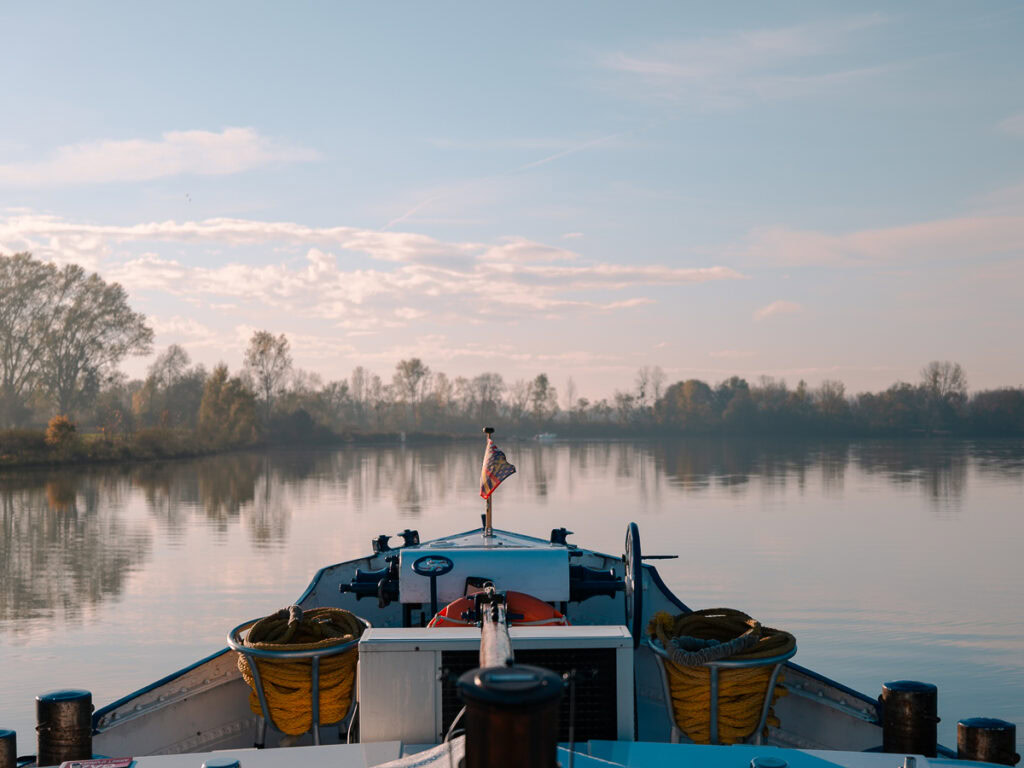
If you’re travelling somewhere with expensive healthcare, like the USA for example, travel insurance with unlimited medical cover is absolutely essential. The average three day stay in hospital in the USA costs around $30,000, so even a simple overnight stay for observation could cost thousands, let alone something like a complicated surgery with a long recovery period.
And besides actual medical costs, a good comprehensive policy might also cover things like ambulance transport, hospital incidentals (food, magazines, toiletries), accommodation for your travel companion to stay nearby, or even for a relative to fly over to support you if you’re travelling solo and are hospitalised.
⚕️ Personal examples:
- I had a chest infection in Dubai which required an urgent GP appointment and medication which was not subsidised as I wasn’t a resident, total cost around $400NZD
- I got food poisoning from a flight, was super weak on arrival, and had travel plans for the next few days. Insurance covered a (very expensive) taxi from the airport to a doctor, then covered the doctor’s appointment, then covered an extra night of accommodation because I wasn’t able to travel the following day. Total cost around $500NZD

*What if there’s a reciprocal healthcare agreement?
There’s a bit of an exception to this rule, and that’s something called a reciprocal healthcare agreement.
Depending on where you’re from, you might be eligible for free or subsidised urgent medical care if you’re visiting a country that has a reciprocal healthcare agreement with your country, for example:
- EU citizens are entitled to medically-necessary healthcare in other EU countries with their EHIC (European Health Insurance Card)
- Citizens from New Zealand, Australia and the UK can access medically-necessary treatment in the other countries
This might make you think that travel insurance isn’t necessary in these situations, but there are some very important caveats:
- These agreements only cover the public health system, whereas travel insurance may provide cover for faster treatment in the private system
- Reciprocal health agreements vary with their conditions but generally they give visitors the same benefits as local residents, so they often exclude things like primary care (GPs), medication outside of hospital, ambulance transport, investigative scans or treatment that’s not immediately necessary
- If an illness or injury results in a hospital stay which screws up your travel plans then lost money from cancellations or delays obviously aren’t covered by any reciprocal agreement
- Hospital incidentals like extra food or a TV in your room aren’t covered by the agreement, but most comprehensive policies have a daily allowance for these things

2. Trip cancellation or changes
If any of your travel bookings are non-refundable, like flights, accommodation or activity tickets, buying travel insurance immediately after you’ve purchased them means that you might be covered if you need to cancel or change your trip for reasons accepted in your policy.
The amount of cover differs by policy, sometimes it’s a fixed limit but sometimes you can choose the cancellation cover you want based on the non-refundable costs.
Policies also have different reasons that they accept for cancellations, but they could include things like:
- Sudden illness or injury (you or your travel buddy)
- A close relative becoming ill or passing away unexpectedly
- A pet getting sick or dying (not a typical inclusion but some policies have this as an extra, like my Cover-More Comprehensive+ policy)
- A wedding you’re travelling for being cancelled
- Breaking up with your spouse or de facto partner
- Unexpected redundancy before your trip

Reasons that aren’t usually covered (unless you’ve paid for ‘cancel for any reason’ cover):
- Choosing not to travel due to political unrest or natural disaster (unless a government-issued travel warning is published)
- Deciding not to travel because you fell pregnant, unless medically advised
- Cancellations or delays caused by the airline (this is the airline’s responsibility)
- Having to cancel your trip because you couldn’t get a visa
💡 Pro tip: The cost of your travel insurance doesn’t go up the earlier you buy it, you only pay for your actual travel dates. Get it as soon as you book your first non-refundable cost, because then you’re protected for anything that happens between then and when you’re scheduled to leave.

3. Travel delays
Flight and train delays are unfortunately a common part of travel these days, but depending on the cause, they can end up costing you way more than time.
If a flight is delayed due to something within the airline’s control, like staffing issues or technical problems, they are usually required to provide accommodation, reimbursement for additional costs or a set amount of compensation, depending on local regulations like EU261/UK261. Insurance won’t cover you for something that is the airline’s responsibility, the airline needs to be your first port of call and if they decline, you could try your luck with insurance after.
But for something outside of the airline’s control, like bad weather or issues related to the entire airport, you’re pretty much on your own.
If your flight home after a trip is cancelled last minute and there are no options until a few days later or the following week, you could be stung with paying for multiple nights of additional accommodation, and if it’s a flight in the middle of your trip, you might miss out on other non-refundable booked hotels or activities.
Most comprehensive travel insurance policies provide some level of cover here, like a per night amount for accommodation and the cost to rebook any bookings you miss due to the delay or cancellation.
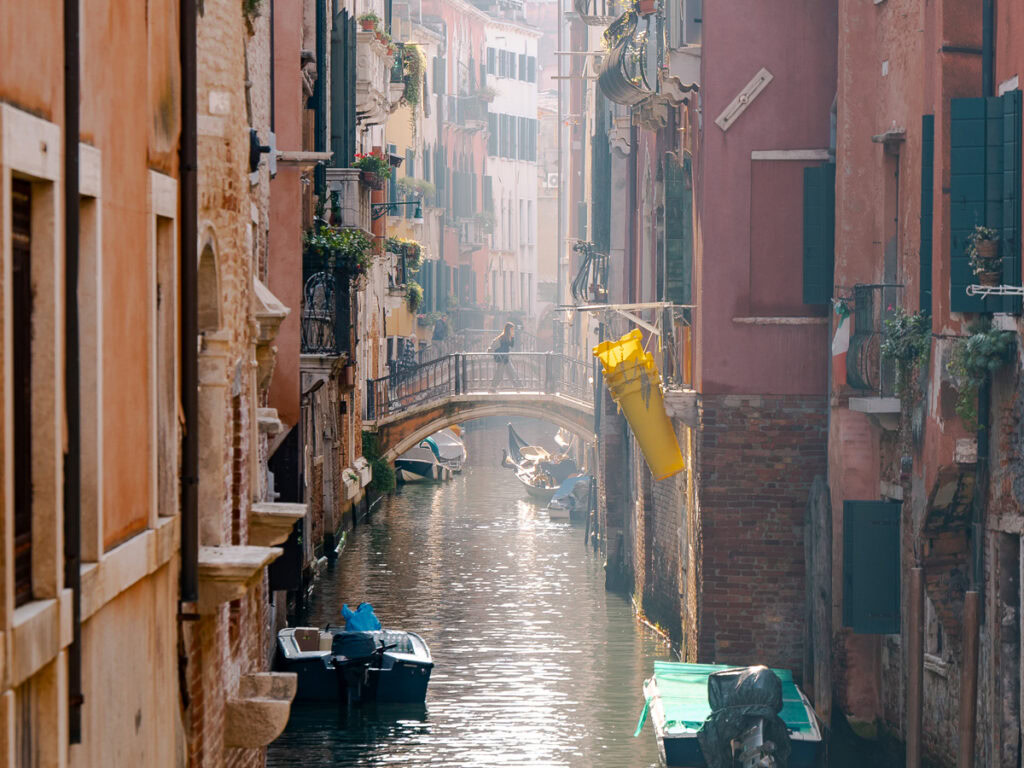
⚕️ Personal example:
At the very end of a nine month round the world trip, a cyclone hit New Zealand which caused travel havoc and resulted in hundreds of flights being delayed, during peak travel season when most flights were already fully booked. I was in Singapore (veeery expensive) and the airline told me that the next available seat was three weeks later!
Being stuck in Singapore for three weeks would’ve cost literally thousands of dollars, and the airline wasn’t going to provide any compensation at all. They offered me a refund, but the flight was super cheap when I bought it and booking a replacement flight on another airline was going to be twice the price.
If I didn’t have insurance, I would’ve had to either pay out of pocket for weeks of accommodation *or* take the flight refund and suck up the hefty fare difference to the new last minute flight.
Luckily my insurance policy had coverage for travel delays like this! I was able to spend up to $400 per night on accommodation (which didn’t go far in Singapore to be honest, a basic private room in a boutique hostel cost $420 a night 🫠) and the fare difference to a replacement flight a few days later was covered too.
But this is a good example where policies can differ hugely. My coverage was $400 per night as I mentioned, whereas my parents’ insurance policy with House of Travel only covered $150 per night per person, so $300 total, which gets you nothing in Singapore. If they’d had my policy it would have covered up to $800 per night for a couple!

4. Delayed luggage
Airlines and airports globally are under-resourced and understaffed, and delayed or lost luggage is wayyy too common. Combine that with shrinking cabin luggage allowances (meaning you have to put important stuff in a checked bag) and you could end up with an expensive list of essentials to restock if your bag doesn’t make it to your destination.
Most travel insurance policies provide cover for essential items if your luggage has been delayed for a certain length of time, usually around 12 hours. Essential items could be a change of clothes and underwear, basic toiletries, chargers that you need for your devices, and some policies even provide cover for transport for you to retrieve your luggage.
Airlines might provide cover for this too but they are typically EXTREMELY slow to reimburse, if they even choose to pay at all.
If your bag is delayed then you first need to get a PIR (property irregularity report) from the airline for proof of the delay, do this before you leave the airport. Once you’ve got that, I’d recommend calling your insurance company to check what cover is provided, then keeping all receipts for the essentials you buy.
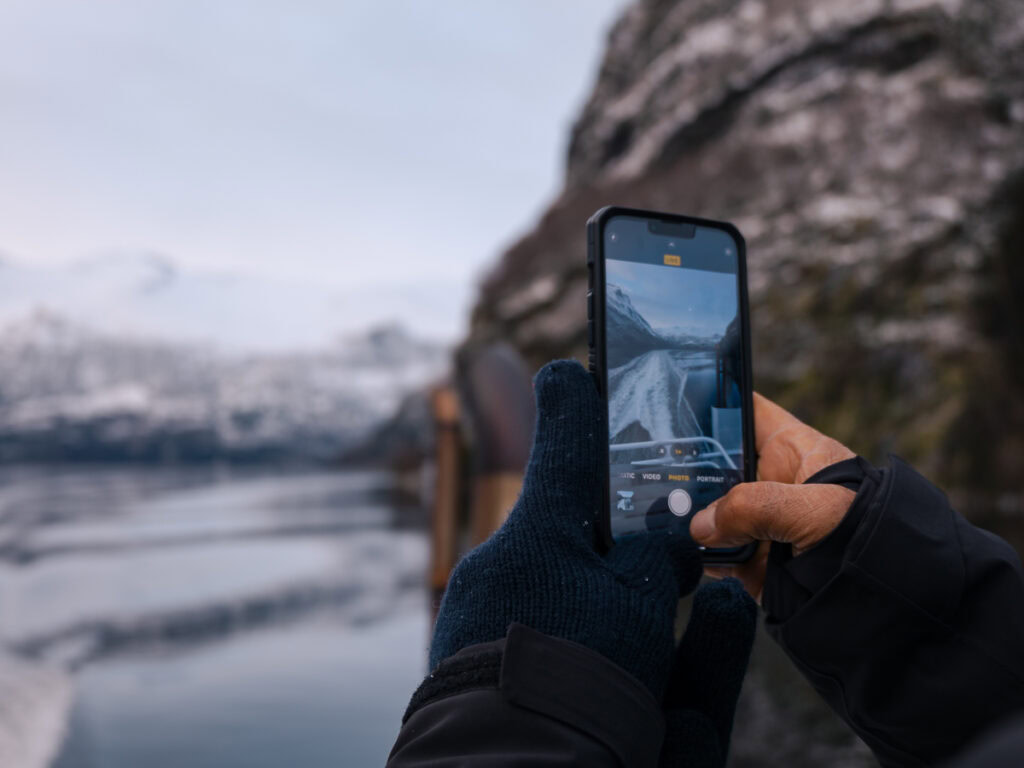
They sometimes won’t tell you an exact amount (because people might treat it as a target) but you can check your policy wording for more details. The general rule is that essential items need to be reasonable, i.e. if your bag has been delayed and you’re heading on a ski trip then ski clothes would be considered essential, but if you’re going sailing in Greece you won’t be able to claim for a $400 ski jacket.
⚕️ Personal example:
A couple of years ago, Etihad lost my luggage while flying from London to Abu Dhabi for three nights, before moving on to Sri Lanka for a week. It was a total nightmare, saved only by Apple AirTags and a decent insurance policy.
Two suitcases were lost, one was waiting for me at Abu Dhabi Airport when I went to fly out on my fourth day there, but the other didn’t catch up with me until another two days later in Sri Lanka and I had to do a two hour round trip to pick it up from the airport.
My Cover-More insurance policy covered pyjamas, four days of Abu Dhabi-appropriate clothing (lightweight but conservative) since I flew in my London winter gear, sunglasses that I’d packed in my check in (essential for Abu Dhabi), and a toiletry kit of sunblock and basic skincare.

5. Theft of valuables
Pickpocketing is rife in many cities around the world, and almost every frequent traveller I know has been victim to petty crime like having their wallet or phone taken out of their bag or ripped from their hands.
Provided you haven’t been careless (e.g. leaving your phone on a café table while going to the bathroom), travel insurance generally covers you for stolen belongings up to a certain amount per item. If you have items over this amount (like cameras or jewellery) you can usually increase the per item limit and the policy will be a little more expensive.
If something gets stolen, you need to report the theft ASAP and get a police report. This can be tricky in some countries (generally developing countries where corruption is common) but it’s essential for any insurance claim.
💡 Pro tip: Take photos of all your valuables and try to find proof of purchase before you head off on your trip, so you can make an insurance claim quickly if you need to.

6. Damage to valuables
If something gets broken during your trip, like if you drop your phone and the screen cracks, you might be covered for repair, replacement or reimbursement based on the value of the item, up to the item limit of your policy.
Some important things to know for this one:
- Item limits vary by policy
- Most policies take into account depreciation, so a broken phone won’t get you a brand new replacement
- Damage caused by carelessness might not be covered, so if you dropped your phone into the pool at 2am in Bali because you were drunk, the insurance provider might decline that claim
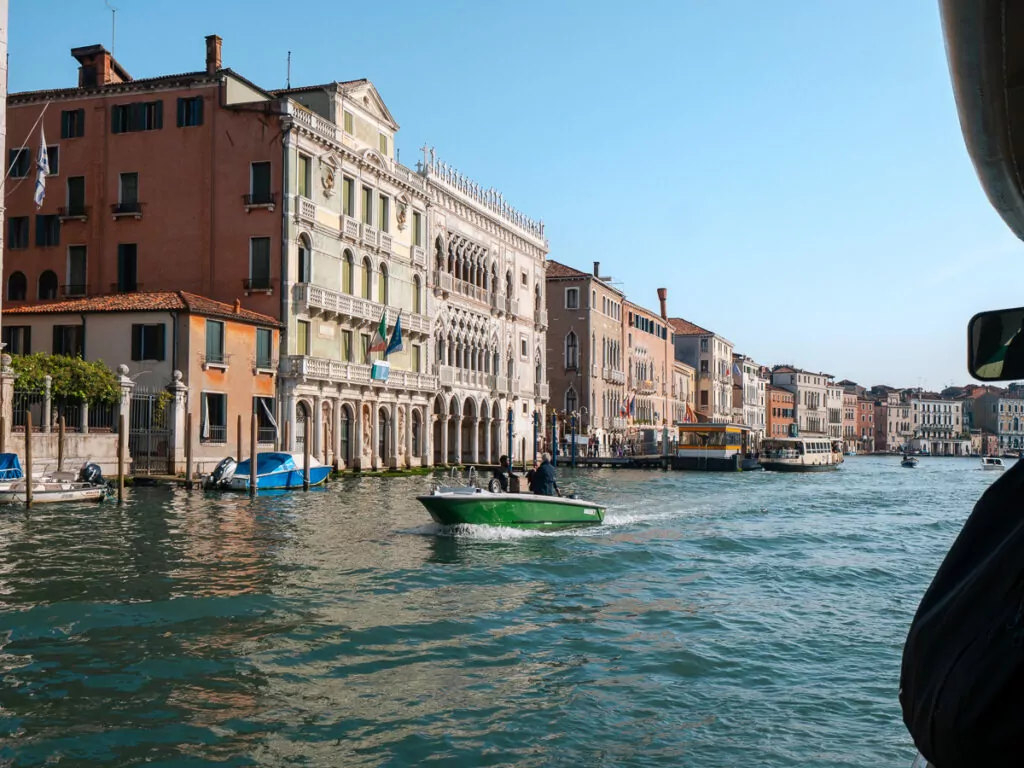
7. Rental car excess
If you’re hiring a car, a campervan or even a scooter on your next trip, there will be an excess to pay if anything goes wrong, even if it’s not your fault. These excesses can be wildly expensive too, usually between $2000-5000 for a standard vehicle in most countries 🤯
Most rental companies offer you the chance to upgrade to higher insurance coverage which has a lower or no excess, but this can cost more than the car itself!
Many travel insurers offer rental vehicle excess cover, sometimes it’s included in a comprehensive policy and sometimes it’s an optional add-on. This means that if something happens to the vehicle and the rental company charges you the excess, your insurance company will reimburse you.
It’s like insurance-ception. Or insur-inception. However you’d like to spell it.
Some things you need to check for this one:
- Is rental vehicle excess included in the policy or is an extra add-on?
- What types of vehicles are covered (cars, campervans, scooters)?
- Do you need an International Driving Permit (IDP) for the country you’re visiting, or do you just need your home license? Many rental companies will take your money without even checking, but if you’re not driving legally and you get into an accident, no insurance will cover you.

⚕️ Personal example:
I made a really stupid mistake on a recent trip to Australia, I went over with my best friend and we found a cheap hire car for $150 for four days (thank you Klook). They asked us if we wanted the additional insurance for another $150 to bring the excess from $5000 down to $0, but I’d bought a comprehensive insurance policy from Cover-More for the trip which included rental vehicle excess cover up to $10,000, so we didn’t need additional insurance.
That four day comprehensive insurance policy cost a grand total of $37, by the way.
I gave them my license for the paperwork, and they told me my license had expired the week earlier! I had NO idea.
Obviously I couldn’t drive so my best friend had to drive, but she didn’t have travel insurance (honestly I see this as a personal failing of mine because I should have asked her if she had insurance leading up to the trip!) which meant we we either had to risk a $5000 excess even if someone else crashed into us, or pay the extra $150 for the rental company’s additional insurance.
We went for the additional insurance, obviously, but if she’d spend $37 on a travel insurance policy before the trip, that wouldn’t have been necessary.
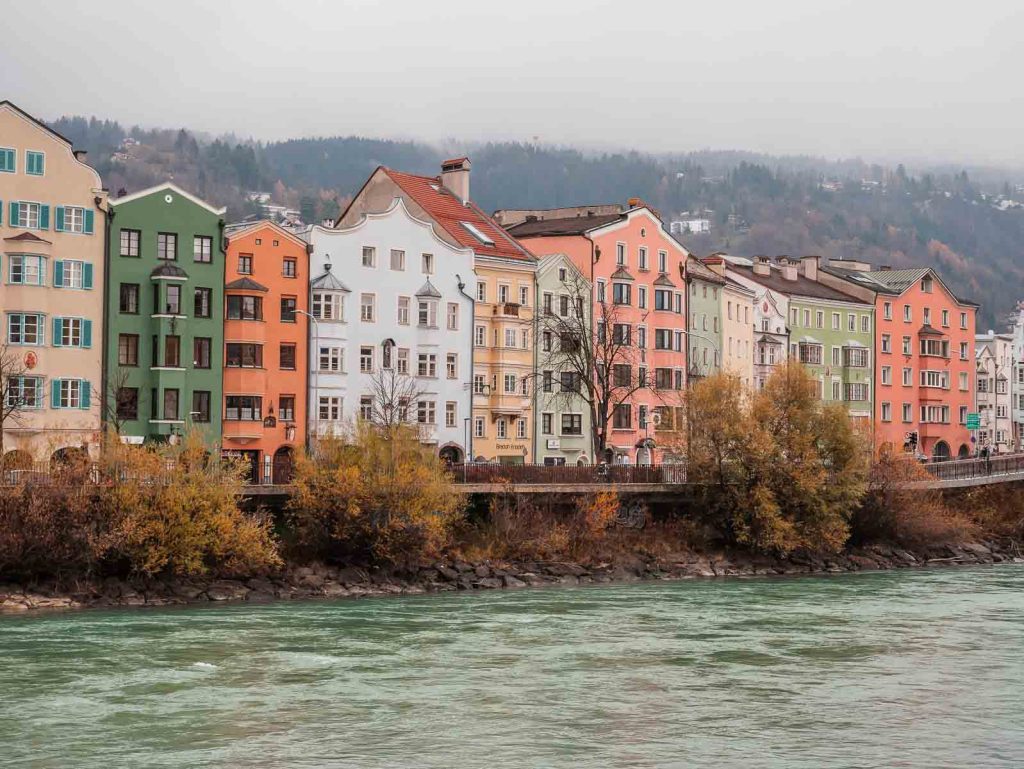
8. Emergency repatriation and support services
Most comprehensive policies include cover for emergency repatriation, which means getting you home if you’ve had a serious illness or injury, or if the worst has happened. Super morbid, I know, but it is one of the reasons why travel insurance is so, so important.
If you’ve been badly injured or are very sick, insurance might cover medevac (medical evacuation) flights to another hospital for emergency treatment, or even cover transport to get you all the way home with medical support if needed.
Even if your health is no longer at risk but you can’t take a normal long-haul economy flight home, like if you’ve broken your leg and have a cast, your policy might cover business class flights with a lie-flat seat to get you home comfortably.
If you pass away overseas, your family will need to make the heart-breaking decision whether to bring your body or ashes home (this is included in the term ‘repatriation’) or to bury you overseas. Costs will depend on the country but repatriation of a body can easily cost between $5000-$10000 for long-haul travel, cremation is likely to be $500+, and an overseas burial could cost between $1500-$2500, not including any medical bills that were incurred before death.
Most travel insurance policies have some level of cover for overseas funeral expenses or repatriation of remains (a gross term but that’s how they say it), provided there are no exclusions that apply, e.g. if you were participating in an activity not covered by your policy.
💡 Travel insurance isn’t there to just protect you, it’s also to make sure your family isn’t lumped with huge bills in case something goes horribly wrong on your trip.

9. 24/7 emergency assistance
All good travel insurance providers give you access to a toll-free emergency number, not just for claims, but also for practical help when things go wrong.
That might include:
- Helping you find a local healthcare provider
- Putting you in touch with a translator so you can communicate with medical staff
- Liaising with local authorities if you’ve been involved in an accident

Is credit card travel insurance enough?
When I’m chatting to friends about upcoming trips and ask them if they’ve bought their travel insurance, loads of them say “I don’t need it, my credit card includes travel insurance.” When I ask them what their credit card insurance actually covers, most of them have no idea 🙃
Included travel insurance is a common perk for credit cards these days, but in my experience, credit card policies almost always provide less cover than a proper comprehensive travel insurance policy, and sometimes the difference is huge.
Let’s compare my current Cover-More Comprehensive+ insurance policy vs. the included insurance on my Amex Airpoints Platinum credit card (as of 1 April 2025, based on my very experienced but definitely-not-qualified understanding of insurance policies haha):
- My Cover-More excess is $0, Amex is $250 for medical claims or cancellation, or $100 for claims of belongings
- My rental vehicle excess coverage is $10,000, Amex is $3000
- Amex’s item limit is $2000 per item but $1000 for smartphones (lol as if any smartphones are less than $1000 these days) and $5000 for a laptop, whereas my policy is $2000 for most items but $3000 for a tablet, $5000 for a laptop, $2500 for a phone and $6000 for a camera
- My cover for hospital incidentals is $10,000, no cover on Amex
- My emergency dental cover is $3000, Amex is $1000
- My policy covers additional expenses like a companion’s accommodation or flying over a support person if a solo traveller is hospitalised, Amex doesn’t cover this
- My policy covers popular activities like abseiling, hot air ballooning, bungy jumping, horse riding, jet boating and trekking above 6000m altitude, Amex doesn’t cover any of these

Credit card travel insurance policies also usually come with some hoops to jump through, like:
- Strict trip length limits (my Amex insurance is 180 days but Monzo Premium’s travel insurance is only for trips 45 days or less)
- A limit on the number of trips it covers each year or the total travel days it covers in a year
- You often have to pay for flights using that exact card to activate cover
- Many won’t cover one-way or open-ended trips, only return flights
- They might only reimburse expenses paid for with that card
- And there’s usually no flexibility, e.g. no option to cover adventure activities, increase item limits, or add pre-existing conditions
I’ve also heard anecdotal evidence from people in the industry that credit card insurance claims are rejected at a far higher rate than travel insurance, which makes sense because most banks suck 👎🏼
So if you’re relying on credit card travel insurance, make sure you’re totally aware of the policy benefits and that it provides you with the cover you need.
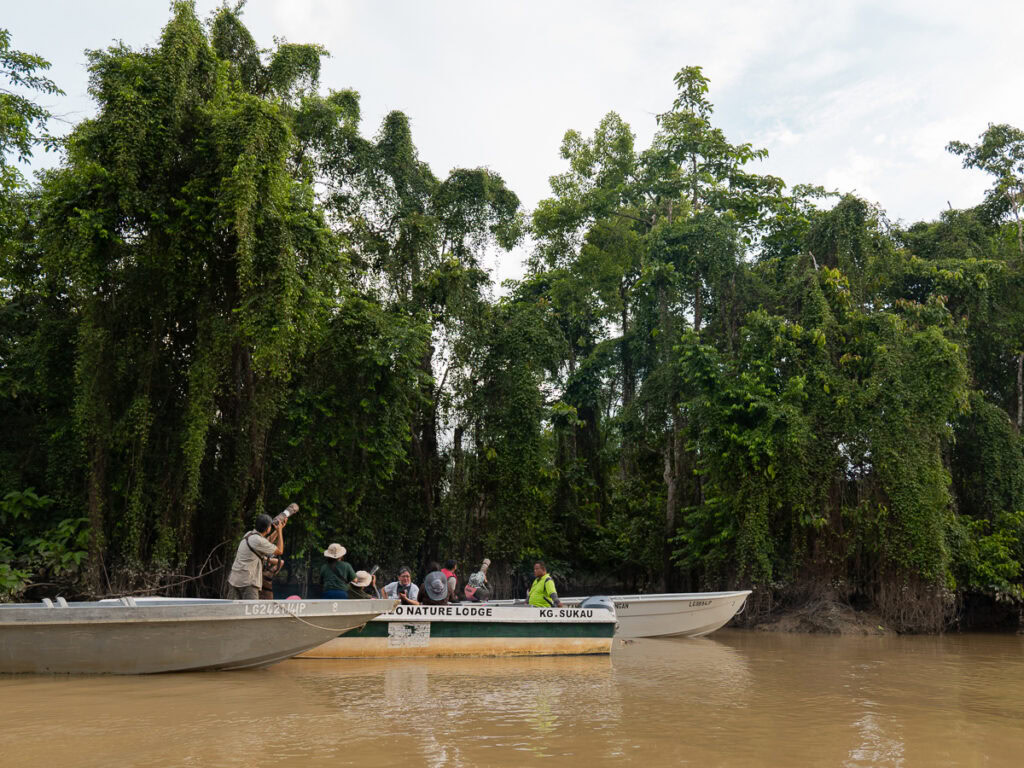
Is Monzo Premium travel insurance enough?
Look, I love Monzo just as much as any Kiwi in London, but I’d be lying if I told you their included insurance is enough for me to travel comfortably.
It does provide decent cover for things like medical costs and travel delays, but their luggage cover is terrrrrible and they only cover trips up to 45 days, so they won’t accept any claims for extended Europe summer jaunts or long trips back home to visit family.
They have a maximum allowance of just £750 for your belongings, so even if your camera bag or backpack got stolen with laptop/clothing/phone/maybe cameras in it, you can only claim up to £750. That would barely cover a phone these days, so if you’re travelling with a laptop, camera, make up, jewellery or anything else valuable, consider getting a proper policy to provide coverage for all your items.
Also keep in mind that if you are living overseas and you use Monzo Premium or any other insurance policy from your current place of residence rather than your home country, in the event of medical repatriation, they will only cover repatriation to your country of residence rather than to your family back home.

Travel insurance myths (and the reality behind them)
After 12 years of working in the travel industry, these are the myths about travel insurance that I hear all the time. Let’s bust them right now.
“I don’t need it if I’m young or healthy”
Your appendix doesn’t care how young you are, that rock you’re about to trip over doesn’t care that you’re healthy, and the pickpocket who’s currently eyeing up your phone as you read this is going to rob you regardless.
Travel insurance isn’t just about your existing health, it’s about the unexpected that could happen.
“I have an emergency fund for any mishaps”
That’s great if you manage to contain your mishaps to a few hundred dollars, but if something major happens, you could be four or five figures out of pocket which might have been completely covered by a $400 policy.
Unless you’ve got a spare $50k sitting in a ‘just in case’ fund, I wouldn’t recommend relying on this one.

“The embassy will help me if something goes wrong”
Your government officials on the ground can help you with things like replacing your passport, or helping you contact family in an emergency, but they won’t pay for your hospital bills, fly you home, or cover a $5000 rental vehicle excess if someone crashes into you. That’s what travel insurance is for!
“Insurance won’t cover me if I was doing something risky”
It depends on what kind of risk. Lots of policies cover typical adventure activities like hiking, biking, scuba diving etc. either included automatically or with specific add-ons, sometimes with limits like altitude for hikes or depth for diving. Cover-More as an example has an extensive list of adventure activities covered with their comprehensive policy, and they offer an ‘Adventure+’ add-on for crazier things like skydiving, Everest Base Camp, white water rafting and rock climbing.
But if you’re claiming for damages from illegal or clearly irresponsible behaviour (like riding a motorbike with no helmet, or swimming in rough seas at night during the Full Moon Party, or you left your expensive camera sitting on the cafe table while you went to the bathroom), then yeah, you’re probably not going to be covered.
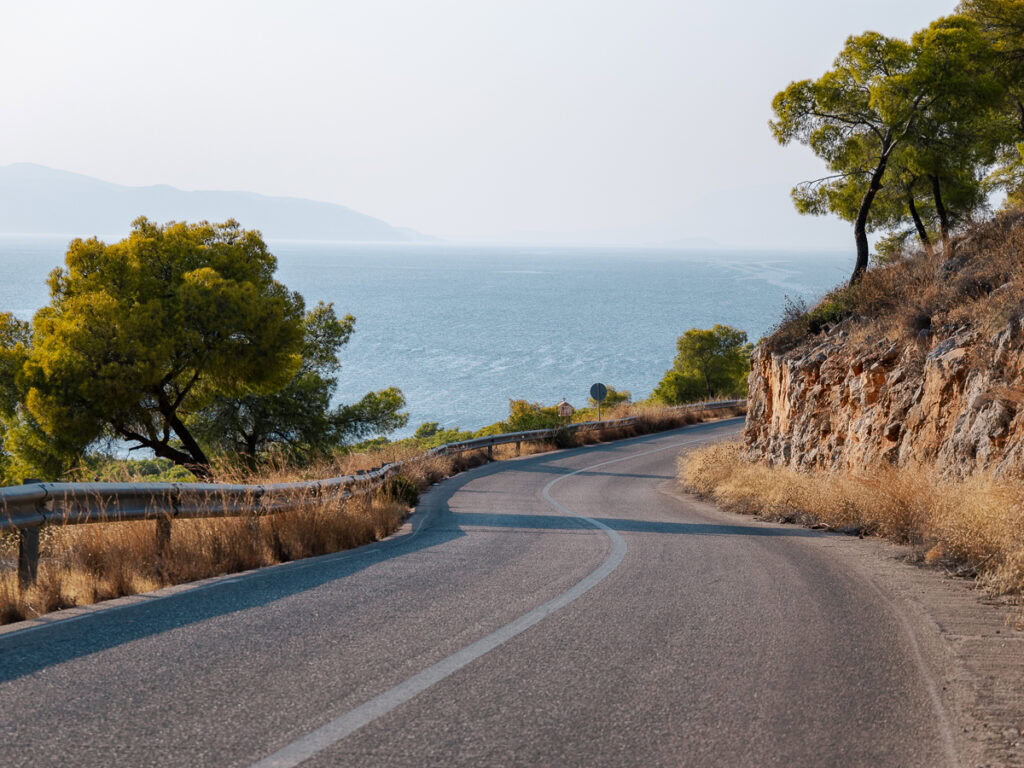
“I’ll just buy insurance later if something happens”
Nooope, travel insurance only covers expected events, so if you’ve been in an accident you can’t buy a policy on the way to the hospital.
Lock in your coverage as soon as you’ve booked anything non-refundable, then you’re covered for cancellation reasons before you go.
“Travel insurance never pays out”
A good insurance provider absolutely pays out if you have the right evidence and the incident falls under your policy coverage, I’ve never had a travel insurance claim denied.
If you buy a comprehensive policy from a trusted provider, understand your policy wording so you know what’s covered, and follow the correct claims process, there’s no reason for you to not be reimbursed.
If you’re having trouble with a claim being denied, ask your insurer if they have an appeals process or check if your country has an insurance ombudsman who could help.

“But I’m only going to Australia/New Zealand/the Pacific Islands” (for my Kiwi/Aussie friends)
Even a short international trip can go sideways fast, especially anywhere with limited medical infrastructure (like some Pacific Islands), expensive travel costs, or that would require pricey medevac flights to get you home in an emergency.
Did you know that if you’re travelling in Australia as a Kiwi, ambulances aren’t covered in the reciprocal healthcare agreement? An emergency callout in Queensland costs $1459 in 2025, and in rural parts of Victoria it can cost more than $2000.
“But I’m only going somewhere else in Europe” (for my European friends)
If you’re visiting a land-bordering country where you’re entitled to decent public healthcare, like an EU resident travelling within the EU with an EHIC, then the risk vs. benefit analysis of travel insurance might not be so clear. In this case it really depends on the coverage you’d need and the risk you’re willing to take.
If you’re travelling with expensive gear like cameras, laptops etc., or if you’ve booked non-refundable flights, hotels and activities, then I’d still really recommend it for peace of mind.
But if you’re comfortable with the public healthcare system of wherever you’re going, you understand the potential exclusions, and it’s not going to cost thousands of dollars to repatriate you if necessary, then it’s *probably* not so crucial. Although it is likely to be reeeally cheap for those trips anyway, so luggage + travel delay coverage could be worth it.
If you’re a European resident travelling further across the continent though, with high non-refundable travel costs, or you’re going anywhere or doing anything that might require support beyond just healthcare in an emergency (like hiking in the Dolomites, sailing in Greece or cruising the Norwegian Coastal Route), the risk of unexpected expenses probably outweighs the cost of a policy.

Tips for choosing a good travel insurance policy
Not all travel insurance policies are created equal, but the best policy for your trip depends on where you’re going, what you’re doing, what you’re taking with you, and the level of cover you require.
I have a full blog post on choosing a good travel insurance policy but here’s a summary of what to look out for:
- Medical cover: The most important one! Look for a policy that offers high or unlimited cover for medical costs, including hospital stays, specialist treatment and emergency evacuation.
- Emergency support: Make sure the insurance provider has a toll-free 24/7 contact number.
- Cancellation cover: Check what cover you get for cancellations, and the reasons that are covered (and what’s excluded). Cancellation cover is sometimes included automatically in policies, sometimes it’s an add-on where you select the financial value you need covered.
- Belongings & item limits: Check how much cover you’d get for stolen or lost items, most policies have a per item and/or overall limit for belongings but you can usually increase this for specific items like expensive cameras or laptops.
- Additional expenses due to delays or cancellations: If you get stuck somewhere unexpectedly due to bad weather, a good policy will cover accommodation so you’re not sleeping on the airport floor for the foreseeable future.
- Support person for solo travellers: If you’re travelling solo, I’d highly recommend finding a travel insurance policy that covers a support person to be flown out to meet you if you get hospitalised while you’re travelling. That’s one of the reasons I go with Cover-More’s Comprehensive+ policy for all my trips.
- Any relevant exclusions: Does the policy cover the destinations you’re visiting, the activities you’re doing, and any pre-existing medical conditions you have? Call the company to check if you’re unsure.
But the most important thing is to always read the fine print. Exclusions, excesses and definitions can vary hugely between providers, so make sure you really know what you’re buying before you lock anything in.

Travel insurance FAQs
How important is travel insurance?
In short: very important. It’s your safety net for when things don’t go to plan, whether you’re dealing with weather cancellations, a medical emergency, petty crime or delayed luggage, it limits the financial and emotional stress of travel mishaps.
Is travel insurance worth it for short trips?
If you’re travelling internationally then yes! Even a long weekend getaway can be derailed by delays, illness or theft.
Do I need travel insurance if I’m just going to Australia from New Zealand (or vice versa)?
Yes. While Aussies and Kiwis can access emergency public healthcare in each other’s countries, that agreement doesn’t cover primary care (GPs), medication outside of a hospital stay, even ambulance transport might be charged at the full price. And that’s just the medical stuff, travelling trans-Tasman without insurance leaves you at risk of cancellations or delays, stolen items or rental car damage, even if someone else caused it.
Do I need travel insurance for Europe?
If you’re not an EU resident then absolutely yes, you need comprehensive travel insurance for Europe.
If you’re an EU resident with an EHIC that covers healthcare, and you’re travelling close to your home country and are comfortable with the risk of cancellations, delays, personal belongings, etc., then you need to balance the cost vs. benefits.
Do I need travel insurance for the US?
The biggest yes in the world. America has some of the highest healthcare costs on the planet, a short hospital stay can quickly hit $10,000USD and a major accident or illness that requires surgery can creep into the six figures. Travel insurance with unlimited medical cover is an absolute necessity for any USA trips.
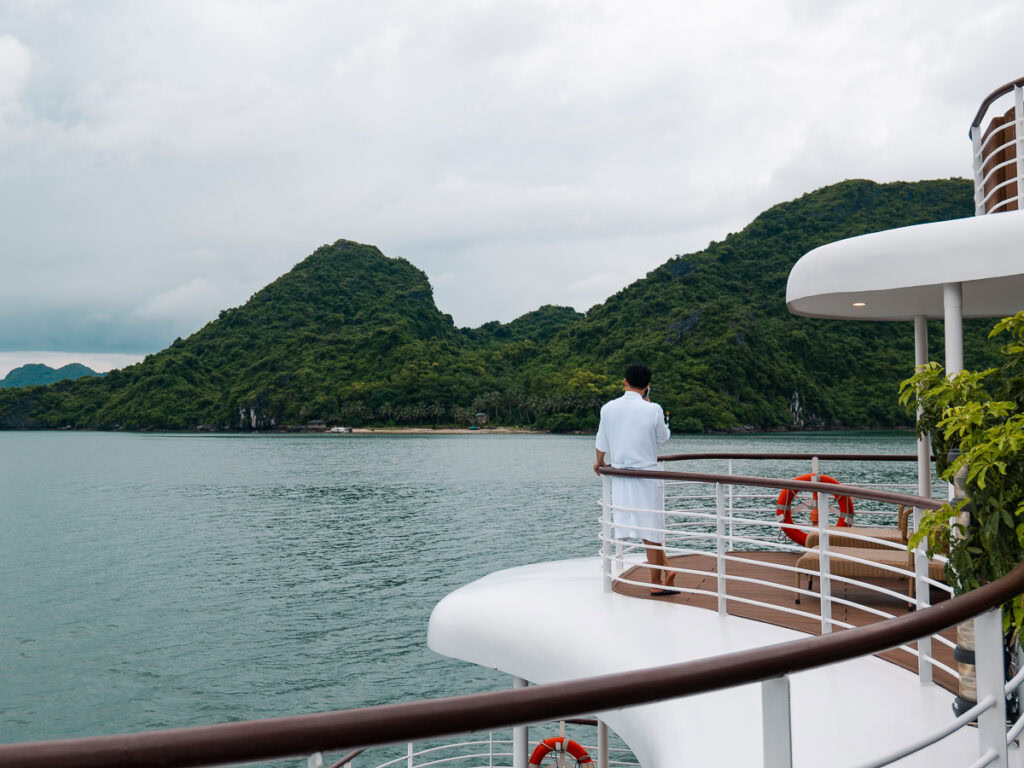
When should you buy travel insurance?
As soon as you book anything non-refundable – flights, accommodation, a tour etc. That way you’re protected in case something unexpected forces you to cancel before your trip even begins. The earlier you buy it, the more value you get from your policy (and you’re only charged for the dates of travel, so buying it early doesn’t cost anything more).
Can I buy travel insurance after I’ve started my trip?
It depends on the insurance provider. Some policies are only available for purchase before you go, some policies can be bought once you’re travelling but they generally have a stand-down period of 3-7 days where you can’t make any claims.
Can you get open-ended travel insurance?
Yes, but not all insurance providers offer this. Some long-term travel policies allow extensions, but many insurers cap cover at 12 months or less. If you’re travelling indefinitely and don’t know when you’ll next be home, look at Safety Wing as a digital-nomad-friendly option.
Can you get travel insurance for one-way trips?
Same as above, some insurers can offer one way policies but not all. One way trips aren’t always available online either, but if you call the travel insurance company they might be able to help you with a custom policy that covers what you need.
Do I need travel insurance before I book flights?
Nope, but I’d recommend booking straight after if your flights are non-refundable! Then you’ve immediately got protection for the money you’ve already spent.

Is credit card travel insurance good?
Credit card travel insurance can offer basic coverage, but it’s almost never as good as a dedicated comprehensive travel insurance policy. Credit card insurance often comes with strict eligibility criteria and lower limits for personal belongings or other costs you might need to claim.
Why should you get travel insurance?
A bit like why you should get a pre-nup! No one plans a trip expecting things to go wrong, but sometimes they do 🤷🏼♀️ And if you’re far from home, dealing cultural differences and language barriers, closely watching the balance of your Wise account, even a small mishap can ruin your trip. Travel insurance protects you from unexpected medical costs, delays, lost belongings and more, and it can be the difference between annoying hiccup and financial disaster.
Does travel insurance cover lost baggage?
Yes, most comprehensive policies cover lost or delayed baggage, including reimbursement for essential items if your luggage took a little detour and compensation if it’s permanently lost. Just make sure you get documentation from the airline straight away, check what your policy covers, and keep all your receipts.
Can I travel without travel insurance?
Technically you can, but I wouldn’t recommend it. Even short, low-risk trips come with some level of uncertainty, and a missed connection, a stolen phone, or a nasty virus could turn things upside down.

Trip insurance vs. travel insurance
They’re often used interchangeably, but technically trip insurance tends to focus on cancellations, delays, and lost bookings, while travel insurance usually includes medical cover too.
Trip insurance tends to be mostly used in North America, and it often doesn’t include medical cover because health insurance is so damn expensive for them that no one would expect it to be included in a travel insurance policy anyway.
Travel insurance on the other hand is more commonly used in New Zealand, Australia, the UK and Europe, and it usually refers to a comprehensive policy that covers medical, cancellations, delays, baggage and more.
Travel insurance vs. medical travel insurance
Again this one might be a case of people using slightly different terms for the same thing, but sometimes medical travel insurance refers to medical-only policies which only cover have healthcare-related benefits, rather than cancellations, belongings, etc.
Do you need travel insurance for cruises?
Most cruise companies require passengers to be insured with a comprehensive policy before they’re allowed to board the ship. Cruises are a logistical nightmare if things go wrong, medical care limited (and expensive) and evacuations from remote regions can literally cost hundreds of thousands of dollars.
Some insurance policies have specific cruise-related insurance add-ons that provide better coverage for the risks of cruise travel.
Do you need travel insurance for tours?
Most global tour companies require proof of insurance from their guests, this helps the tour guide manage mishaps if a traveller gets sick or injured and needs emergency help.
Do kids need travel insurance?
Yep! Kids can get sick, have accidents, or lose stuff while travelling, and insurance makes dealing with all of that way easier. Many family policies let you add children for free or at a reduced cost, so there’s no reason to skip it.
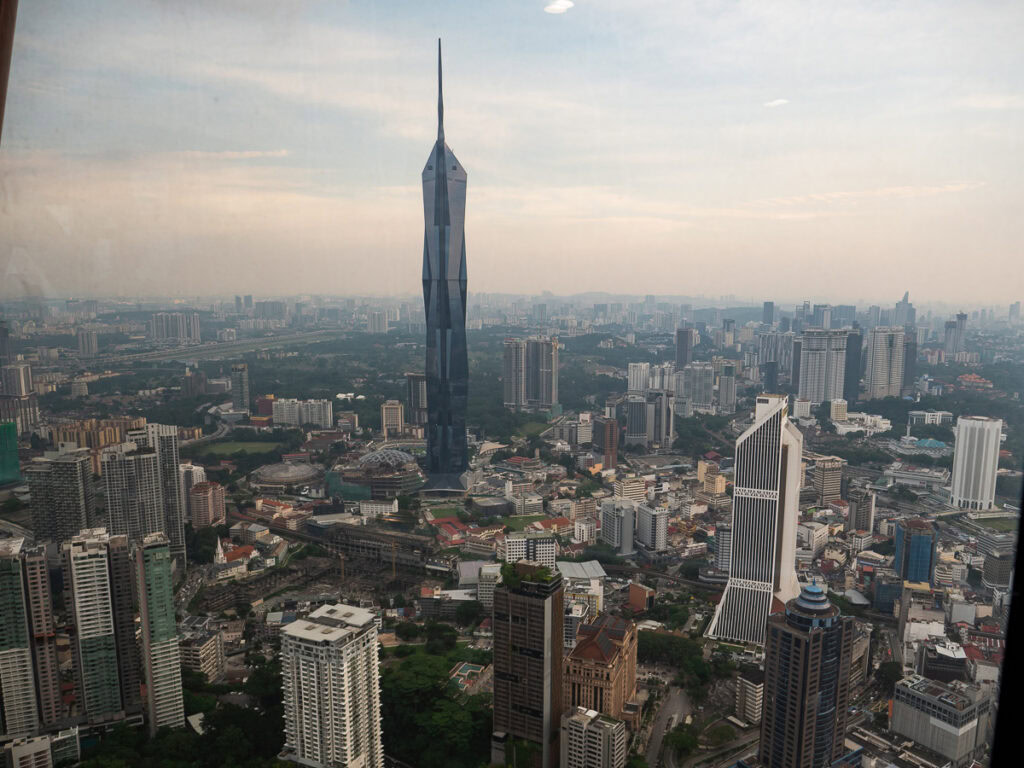
Final verdict: Do you need travel insurance?
I know travel insurance is the most boring part of trip planning, but it’s probably the single most important thing in terms of long-term impact on the rest of your life. Unless you meet your future husband at the airport lounge, that’s probably going to have a big impact too I guess.
The best case scenario is that you do your research, buy an insurance policy that covers what you need, and you never have to even open the policy information ever again because nothing went wrong. That’s a win!
But even if the chances of needing it are low, like if you’re young and healthy or if you’re only flying a few hours from home, the consequences of not having a comprehensive travel insurance policy can be financially and emotionally devastating. That sounds super intense but I am not playing, a quick Google of ‘no travel insurance horror stories’ will show you how bad things can get when you’re not covered.
Even for little mishaps, travel insurance can save loads of time and money. Your wallet being pickpocketed on a Europe train trip, a twisted ankle in Vietnam that means you have to cancel your Sapa hike, a flight delay that means you miss your connecting trip home and have to spend a night in Dubai without your checked bag. All these things are easily covered by most travel insurance policies, but could cost you thousands without one.
Insurance policy options depend on where you’re buying from, if you’re a fellow Kiwi or NZ resident reading this then I personally use and recommend Cover-More Travel Insurance. This is my fourth year travelling with them and their coverage is extensive, they’re super easy to deal with, and they’ve been quick to pay out my claims.
If this was helpful, share it with a travel buddy who always forgets to buy insurance!
MORE HELPFUL TRAVEL TIPS:
- How to choose the best travel insurance policy
- How to use Skyscanner Everywhere to get the best flight deals
- How to find cheap accommodation
- The incognito mode myth (and what to do instead)
- Must-haves for every solo female traveller
- The best eSIMs for the UK
- The best global eSIM data plans
MY GO-TO TRAVEL PLANNING RESOURCES
Flights ✈️ I use Skyscanner to find the best flights for my trip and then I’ll always book direct with the airline to protect myself from having to deal with dodgy third parties if anything goes wrong.
Trains 🚂 If I’m travelling through Europe, I try to travel by train wherever possible! For an extended trip (2+ weeks) I’ll calculate if a Eurail Pass is worth it, or I’ll book point-to-point tickets through RailEurope or the local train operator.
Accommodation 🛎️ I book almost all of my accommodation through booking.com, they have a user-friendly website + app and many of their options are free cancellation, easily cancelled with a simple click of a button.
Activities 🗽I use GetYourGuide, Klook and Viator to look for activities in the places I visit, or I just Google ‘things to do in [city]’! P.S. If you book anything on Klook you can use the promocode FINDINGALEXXKLOOK to get 10% off
Travel cards 💳 I’m a Wise gal through and through, they’ve been my chosen travel card for more than five years now. You can easily top up your card from your bank account or through Apple Pay, convert your money to local currency, and spend money with minimal fees and the best exchange rates around.
Travel insurance 🩺 I use Cover-More NZ travel insurance for my own trips, I have a comprehensive policy and I’ve only had good experiences with them. Cover-More also has an Australian company, but if you’re from elsewhere then two popular insurance options for global travellers are SafetyWing (cheaper policy, lower coverage) and World Nomads (more expensive but significantly better coverage).
Luggage 💼 I travel with Samsonite Cosmolite suitcases, one 75cm check in bag and a 55cm carry on bag, and I absolutely adore them and will never travel with anything else! They are SUPER lightweight (2.8kg and 1.9kg respectively) so I have much more space for my actual stuff.
Camera gear 📸 I use a iPhone 15 Pro Max for phone photos/videos, and my camera kit includes a Lumix S9 (incredible lightweight full-frame camera, a game changer for travel creators!) with a 20-60mm lens, a Lumix G9 with an 8-18mm and 12-60mm lens, a DJI Mini 3 Pro drone and a GoPro Hero 10. I do all my writing and editing on my ASUS Zenbook 14, it’s lightweight but powerful enough for photo editing and intense blogging sessions.
